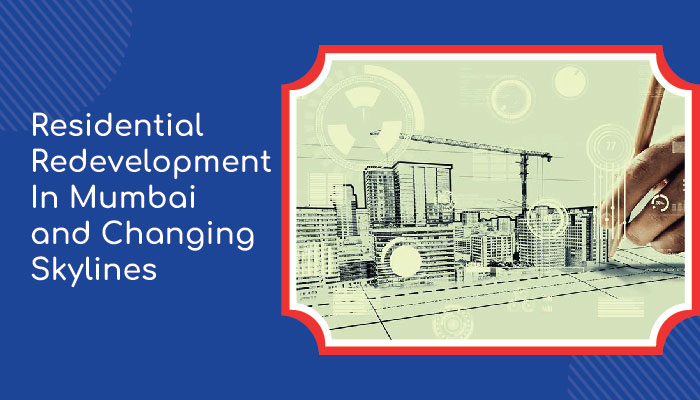Buying a house in one’s home country is of tremendous emotional as well as monetary significance, especially for Non-Resident Indians (NRIs). It is all about rekindling roots for some, having one’s residence to return to, or being capable of leaving behind a meaningful long-term legacy that would be cherished throughout generations. In the last couple of years, NRI property investment in Indian real estate has surged briskly on the basis of increased returns on investment, the allure of the Indian lifestyle, favourable currency exchange rates, and exponential housing infrastructure growth. Indian property law, finance policy, and documentation standards vary for NRIs compared to residents. Let us tell you what you must know before you buy property in India.
Are You Planning to Invest in Indian Real Estate as an NRI?
Navigate Indian property buying smoothly with crucial legal and investment guidance for NRIs.
A] Be Informed About Which Types of Properties NRI Can (and Cannot) Buy
Permitted Types of Properties for NRIs
NRIs can freely buy most of the immovable assets in India, including residential houses like apartments, villas, bungalows, and farmhouses, and commercial buildings like offices, retail shops, showrooms, warehouses, and industrial parks. There is no limit to the number of residential or commercial properties one can purchase if one is an NRI. This makes India an attractive place for NRI investors for real estate, whether for personal residence or investment-purposeful acquisition.
Restrictions to Keep in Mind
The NRIs cannot purchase farmhouses, plantations, or agricultural land for private use. These are restricted properties and can only be bought as a gift or through inheritance from a resident Indian. Plantation houses, such as tea or coffee, have to take prior approval from the Reserve Bank of India (RBI). Knowing these limitations beforehand helps you avoid legal battles or breaking the rules.
B] Most Significant Legal Framework: FEMA & RBI Directives
The FEMA regulates all property transactions on behalf of NRIs in India. It offers maximum control over foreign money invested in real estate inflow and outflow. Additionally, as per FEMA and RBI guidelines for NRI investment in real estate, payment is to be made in Indian Rupees from NRE (Non-Resident External), NRO (Non-Resident Ordinary), or FCNR (Foreign Currency Non-Resident) accounts. Cash payment is completely ruled out.
Power of Attorney (PoA) is used by most NRIs when they are unable to be physically present in India to complete the purchase process. It is legally acceptable that a person whom you trust can sign, transact bank business, and enroll on your behalf.
C] Ready Documents to Keep
To enjoy a smooth purchase process, keep the following documents ready:
- Valid Passport and PAN card
- OCI/PIO card, if needed
- Indian address proof (electricity bill, Aadhaar, etc.), if necessary
- Details of the NRE/NRO account for the settlement of payment
- Home loan sanction letter and documents, if funding is involved
Ready e-forms and hard copies facilitate the verification process and avoid back-and-forth between banks and property registrars. These are the ways to any NRI property purchase and help avoid verification delays.
D] Financial Planning & Funding Options
Home Loan Eligibility for NRIs
The top banks and housing finance agencies provide home loan plans that are tailor-made to suit NRI buyers. However, it is usually reliant on habitual foreign income, employer records, and credit reports. Some lenders may also need a resident Indian co-applicant. NRIs are also given competitive interest rates, but the loan duration might be slightly decreased with respect to residents. That’s why NRI investment in Indian real estate requires calculated and safe financial planning to keep the repayment under control and avoid extra interest on late payment.
Mode of Payment
To be FEMA-compliant, all payments, whether down payments, EMIs, or settlements, will need to be remitted from NRE, NRO, or FCNR accounts. The foreign currency can be remitted directly into the aforesaid accounts before it is credited to the seller’s account. This formal document makes the transaction valid and enables repatriation without any inconvenience in the future.
E] Step-by-Step Purchase Process for NRIs
1. Shortlist the Property
Even before you start hunting for property, be sure to do your research based on your budget, areas of your choice, and your investment objectives. Next, shortlist registered developer properties, preferably the RERA-registered properties.
2. Hire a Real Estate Agent or Legal Advisor
Engage a qualified legal consultant before the purchase of a property. A professional local agent or lawyer will advise you on market trends, legal checks, and compliance regulations.
3. Check all documents
At the time of purchasing the property, document checking is a crucial process. Verify the title deed of the property, history of ownership, RERA, and municipal approvals. See that there is no dispute, lien, or legal encumbrance before you make the move and pay a rupee.
4. Draft & Sign Agreement to Sale
This places the terms, payment schedule, and possession timeline in writing. Ensure your attorney goes through it for the protection of your interests.
5. Registration & Stamp Duty
As soon as the purchase process goes forward, remit the relevant stamp duty (region-based) and register the property at the sub-registrar’s office. Registering is necessary to create a legal title.
6. Get Possession & NOC
After completion, inspect the property to ensure facilities and quality on delivery. Additionally, obtain a No Objection Certificate (NOC) from the society or developer.
If you can’t remain in India to perform the above steps, your PoA holder can do so for you.
F] Common Pitfalls to Avoid
It may be profitable for NIRs to invest in Indian property, but not stating key points can make the process a tarnished one.
- Skipping due diligence over the reputation of the builder can lead to delays or poor-quality construction.
- Skipping legal formalities and paperwork can lead to future danger.
- Failing to cover surprise expenses like maintenance deposits, GST, and property tax dues.
- Lack of provision in the budget for foreign country property maintenance and upkeep while overseas could affect rental value and resale value.
By being aware of these pitfalls in advance, NRI real estate buyers can protect their investments and enjoy trouble-free ownership.
G] Regional Trends: Where Are NRIs Investing in India
For NRIs, Tier-1 cities like Mumbai, Pune, and Bengaluru are still the most preferred options. These are cities that boast of good infrastructure, healthy job economies, and good capital appreciation. For Mumbai, Dadar, Bandra, Sion, Matunga, Mahim, and Worli are some of the most popular localities with good rental demand. They also provide steady capital appreciation, which enables investors to accumulate long-term wealth.
Hyderabad, Kochi, and Ahmedabad are soon becoming hot spots in the non-metros with a lot of interest by the NRIs. With relatively lower entry points but huge growth prospects, these markets are emerging as preferred destinations for long-term investors.
The second trend that is driving NRI investments is the high demand for luxury homes, which vary in the form of secured complexes, technology-driven high-rises, and high-quality seafronts. These developments not only conform to international levels of lifestyle but will also command superior rentability and long-term appreciation.
Get in Touch With Our Experts
Our team is here to guide you — reach out today for quick assistance.
Conclusion
Investing in Indian real estate as an NRI presents promising prospects for emotional well-being and wealth generation. However, NRI property investment requires proper research and knowledge of the laws. Partnering with well-known developers, such as Harsh Group, a trusted real estate developer in Mumbai, can turn the job into being easy with the assurance of transparency, quality, and easy execution from inception to completion. So, are you interested in investing in Indian property? For complete help from the beginning to the end of finding and purchasing your ideal house, contact Harsh Group today.

Harsh Gupta
Harsh Gupta is a visionary architect based in Mumbai, dedicated to crafting homes that blend elegance, functionality, and modern living. As the Founder and CEO of Harsh Group, he brings over a decade of expertise in delivering high-quality residential projects across the city. Known for his commitment to timely delivery, transparency, and client satisfaction, he ensures every project reflects his passion for creating vibrant communities. His innovative designs and unwavering integrity have earned him the trust of countless homeowners, making Harsh Group a trusted name in redefining urban living in Mumbai.



